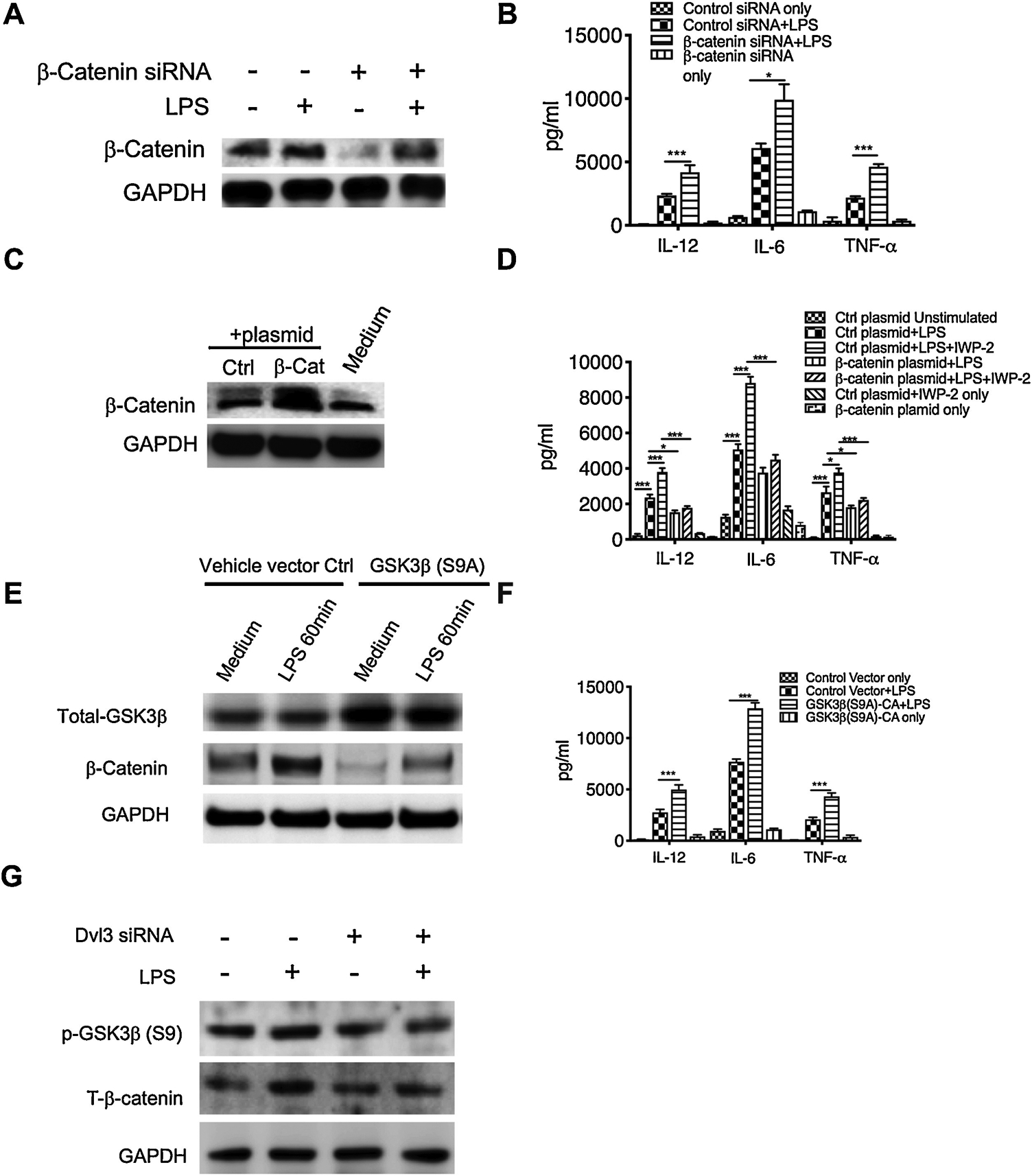Figure 4. Wnt3a-Dvl3 suppresses inflammatory responses through downstream GSK3β-β-catenin signaling.

A to D, purified human monocytes were transfected with β-catenin specific siRNA (A) or a plasmid encoding β-catenin mutant (S33Y) (C), no-specific scramble siRNA and empty vector plasmid were also transfected as controls. After 48 hours, cell lysates were collected to test the efficiency of transfection by the expression of total β-catenin (A, C) and the separate groups were stimulated with LPS for another 24 hours. (B, D) The production of IL-12P40, IL-6 and TNFα in β-catenin siRNA-treated (B) or plasmid encoding mutant β-catenin-treated (D) human monocytes. E to G, the same procedure as in A to D was used to treat purified human monocytes with the plasmid encoding GSK3β mutant (S9A) (E), or the siRNA of Dvl3 (G). (E) Expression of total GSK3β was measured by Western Blot to test the transfection efficiency. (F) The production of IL-12P40, IL-6 and TNFα in human monocytes upon the overexpression of constitutive active GSK3β mutant. (G) The expression of phospho-GSK3 (S9) and total β-catenin in LPS stimulated monocytes with or without the pretreatment of Dvl3 siRNA. All results are the average of at least three independent experiments. Error bars represent standard deviation. *, and *** indicates statistically significant at P<0.05, and P<0.001, respectively. Data represent the arithmetic mean±S.D. of three independent experiments.
